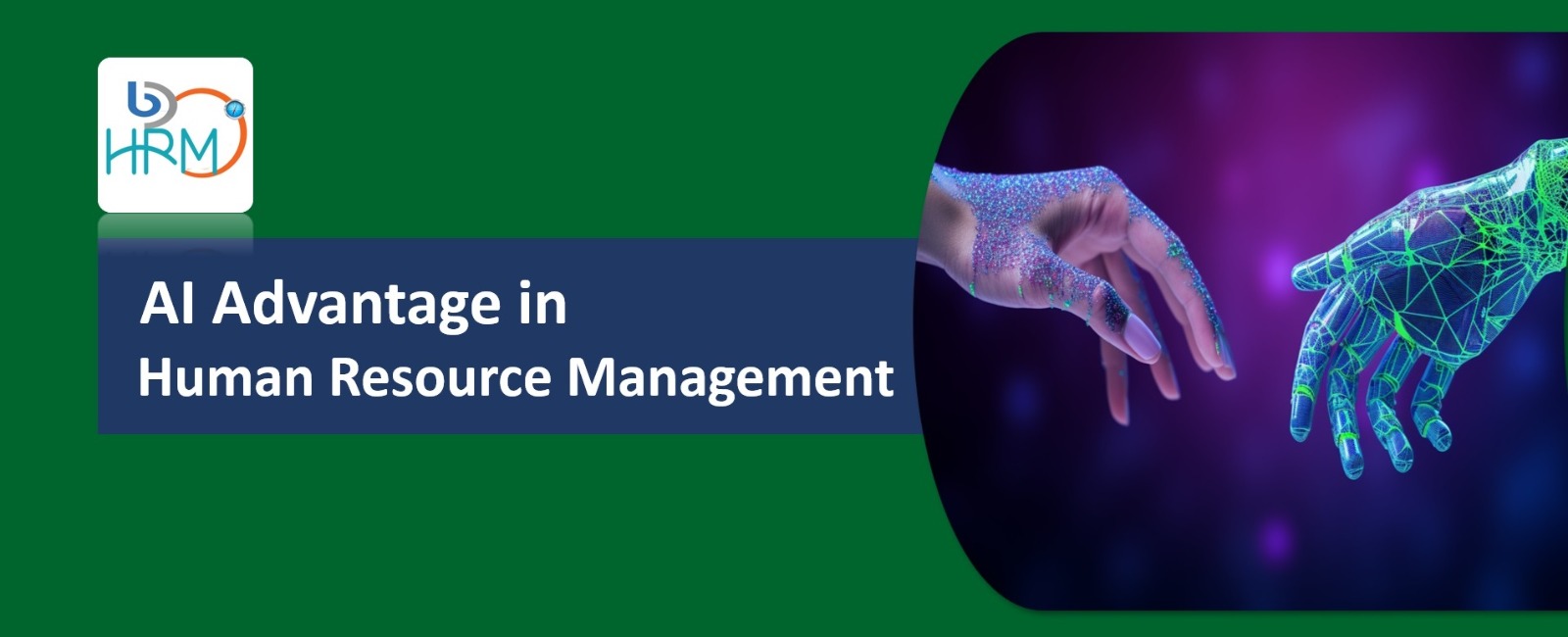Welcome to the transformative realm of AI in HR! Artificial intelligence, commonly known as AI, isn’t merely a passing tech trend; it’s reshaping how companies manage their workforce. Picture smart tools streamlining hiring processes, personalizing employee experiences, and aiding in informed decision-making. This article delves into how AI is revolutionizing HRM practices, promising to enhance work life for everyone involved.
AI-Enabled Recruitment Transformation: Artificial Intelligence revolutionizes hiring by automating tasks like resume screening, ensuring more efficient and unbiased candidate selection. Consider a scenario where a company relies on manual resume reviews, limiting their reach to local job boards and potentially overlooking qualified candidates due to time constraints and bias. Introducing an AI-powered applicant tracking system (ATS) like Lever or Greenhouse can automate resume screening. These systems use machine learning algorithms for objective assessments, ensuring fairer selection and tapping into diverse talent pools. For instance, Unilever implemented AI in its recruitment process through Pymetrics, which assesses candidates based on cognitive and emotional traits, minimizing bias and elevating hiring quality.
Personalization in Employee Experience: Artificial Intelligence tailors employee experiences by offering personalized learning paths and benefits, significantly boosting engagement. If an organization currently provides standardized training programs to all employees, an AI-powered HR platform like Cornerstone OnDemand could customize learning paths based on individual skills and interests. Similarly, IBM’s AI-powered platform “Your Learning” analyzes employee skills to suggest personalized training courses, aligning learning with individual career goals.
Predictive Analytics Shaping HR Strategies: Predictive analytics forecasts turnover, empowering HR to proactively retain talent. Imagine a company that addresses turnover reactively, lacking proactive identification of potential turnover risks or targeted retention efforts. Utilizing HR analytics software such as Visier can predict turnover by analyzing various factors like engagement levels and historical trends. This enables HR to identify potential turnover risks in advance, implementing personalized retention strategies like career development plans or leadership opportunities to retain key talent.
DEI Advancements through AI: Artificial Intelligence minimizes bias in HR decisions, promoting diversity and inclusion. Organizations striving for diversity may encounter biases in their recruitment process, leading to unintended homogeneity within their workforce. Using AI tools like Textio or GapJumpers, companies can anonymize resumes during initial screenings, ensuring fairer evaluations. Additionally, AI-powered sourcing tools broaden candidate searches across various platforms and demographics, enabling a more diverse pool of applicants. For example, Gap Inc. utilized Textio to craft inclusive job descriptions, resulting in a 30% increase in female hires.
Performance Management Evolution: Artificial Intelligence -driven systems offer continuous feedback and personalized development plans, a stark contrast to annual performance reviews and generic development plans for all employees. Implementing an AI-powered performance management system like Lattice or 15Five enables continuous feedback loops for employees, aiding real-time adjustments. AI analyzes performance data to suggest personalized development plans tailored to individual strengths and growth areas. For instance, Adobe introduced an AI-based system called Check-In, providing employees with instant feedback for enhanced performance and career growth through personalized insights.
AI’s adoption in HR marks a watershed moment, revolutionizing talent management practices. From unbiased recruitment processes to tailored employee experiences, predictive analytics forecasting turnover, and AI-driven performance enhancements, each aspect heralds a new era. These advancements, coupled with a focus on Diversity, Equity, and Inclusion, redefine workplace dynamics. While ethical considerations remain paramount, the undeniable gains—heightened efficiency and engagement—underscore AI’s indispensable role in shaping tomorrow’s workplace landscape.
Want to know what is the best Job in the upcoming world. Then click here.
Author: Md Aminul Islam, HR Professional, LinkedIn

Pingback: Unlocking the Future: AI's Impact on Jobs, Risk to Opportunity - HRM Solution
Pingback: Top 10 AI Tools for HR: Every HR Professional Should Know